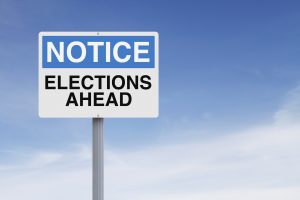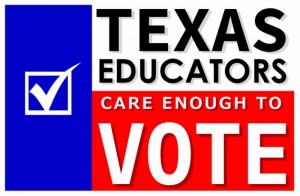Learn about 2018 party primary ballot propositions

Elections Privatization | Vouchers
Date Posted: 2/08/2018 | Author: Jennifer Mitchell, CAE

Texas primary elections are coming up on March 6, 2018. When early voting begins on Feb. 20, registered voters in our state will have a chance to pick candidates vying for statewide offices such as governor or lieutenant governor, legislative seats, and host of others. But candidates aren’t the only thing you’ll be voting on during the upcoming primary election.
Texas has an open primary system, meaning that you can choose to participate in either the Republican or Democratic party primary, but not both. Your ballot will be determined by where you reside along with which party’s primary you choose. If you choose to participate in the Republican party primary this spring, you will only pick from Republican candidates on your ballot. Likewise, if you opt to vote in the Democratic party primary, you’ll only be seeing Democratic candidates on your ballot this time around. Due to gerrymandering and demographic trends, some districts in Texas will lean so heavily in favor of a single political party that only candidates from that one party will file to run for the office. That’s why we encourage you to learn about the candidates who are running in your area and pick the party primary in which your vote will make the most difference on March 6.
Remember that voting in a party primary does not bind you to vote for that same party’s candidates in November, because you can vote for any candidate from any party or even independent candidates with no party affiliation during the general election.
We encourage you to use our candidate search page here on Teach the Vote to learn more about the candidates in your area, but also know that your primary election ballot will include a few additional items on which you can vote. Texas’s state Republican and Democratic parties use the primary election as a tool to help shape their party platforms every two years. The leadership of each party has selected a handful of ballot propositions to present to voters on their primary ballots. These questions do not change the law in any way or have any binding effect, but they act as a sort of poll to help party leaders learn which issues are most important to their own voters.
For the upcoming 2018 primary election, the Texas Democratic Party has chosen to include 10 propositions on its primary ballot, while the Republican Party of Texas is presenting 11 propositions for its voters to consider. When you vote in the primary, don’t forget to read and consider the ballot propositions and decide whether you agree or disagree with the party’s proposed position on each issue. Some of the ballot measures do relate to public education, such as the GOP’s proposition number five, which deals with using public funds for private or home school vouchers. Your vote during the primaries on nonbinding ballot propositions is a chance to share your input on what ultimately makes it into the official state platform of your political party.
For the upcoming 2018 primary election, the Texas Democratic Party has chosen to include 10 propositions on its primary ballot, while the Republican Party of Texas is presenting 11 propositions for its voters to consider. When you vote in the primary, don't forget to read and consider the ballot propositions and decide whether you agree or disagree with the party's proposed position on each issue. Some of the ballot measures do relate to public education, such as the GOP's proposition number five, which deals with using public funds for private or home school vouchers.
Your vote during the primaries on nonbinding ballot propositions is a chance to share your input on what ultimately makes it into the official state platform of your political party.  Below are lists of the party platform propositions that will be appearing on your Republican or Democratic primary ballot this year, depending on the political party whose primary you decide to participate in for the March 6 election. Stay tuned to Teach the Vote in the coming days for additional information on how you can help shape your political party's platform and future direction. Your vote is your voice!
Below are lists of the party platform propositions that will be appearing on your Republican or Democratic primary ballot this year, depending on the political party whose primary you decide to participate in for the March 6 election. Stay tuned to Teach the Vote in the coming days for additional information on how you can help shape your political party's platform and future direction. Your vote is your voice!
2018 Texas Republican Party Ballot Propositions:
- Texas should replace the property tax system with an appropriate consumption tax equivalent. Yes/No
- No governmental entity should ever construct or fund construction of toll roads without voter approval. Yes/No
- Republicans in the Texas House should select their Speaker nominee by secret ballot in a binding caucus without Democrat influence. Yes/No
- Texas should require employers to screen new hires through the free E-Verify system to protect jobs for legal workers. Yes/No
- Texas families should be empowered to choose from public, private, charter, or homeschool options for their children’s education, using tax credits or exemptions without government constraints or intrusion. Yes/No
- Texas should protect the privacy and safety of women and children in spaces such as bathrooms, locker rooms, and showers in all Texas schools and government buildings. Yes/No
- I believe abortion should be abolished in Texas. Yes/No
- Vote fraud should be a felony in Texas to help ensure fair elections. Yes/No
- Texas demands that Congress completely repeal Obamacare. Yes/No
- To slow the growth of property taxes, yearly revenue increases should be capped at 4%, with increases in excess of 4% requiring voter approval. Yes/No
- Tax dollars should not be used to fund the building of stadiums for professional or semi-professional sports teams. Yes/No
2018 Texas Democratic Party Ballot Propositions:
- Should everyone in Texas have the right to quality public education from pre-k to 12th grade, and affordable college and career training without the burden of crushing student loan debt? Yes/No
- Should everyone in Texas have the right to refinance student loan debt with the Federal Reserve at a 0% interest rate, as relief for the crushing burden of debt and an investment in the next generation of Americans? Yes/No
- Should everyone in Texas have a right to healthcare, guaranteed by a universal, quality Medicare-for-all system? Yes/No
- Should everyone in Texas have the right to economic security, where all workers have earned paid family and sick leave and a living wage that respects their hard work? Yes/No
- Should the Democratic Party promote a national jobs program, with high wage and labor standards, to replace crumbling infrastructure and rebuild hurricane damaged areas, paid for with local, state, and federal bonds financed through the Federal Reserve at low interest with long term maturities? Yes/No
- Should everyone in Texas have the right to clean air, safe water, and a healthy environment? Yes/No
- Should everyone in Texas have the right to a life of dignity and respect, free from discrimination and harassment anywhere, including businesses and public facilities, no matter how they identify, the color of their skin, who they love, socioeconomic status, or from where they come? Yes/No
- Should everyone in Texas have the right to affordable and accessible housing and modern utilities including high speed internet, free from any form of discrimination? Yes/No
- Should every eligible Texan have the right to vote, made easier by automatic voter registration, the option to vote by mail, a state election holiday, and no corporate campaign influence, foreign interference, or illegal gerrymandering? Yes/No
- Should everyone in Texas have the right to a fair criminal justice system that treats people equally and puts an end to the mass incarceration of young people of color for minor offenses? Yes/No
- Should there be a just and fair comprehensive immigration reform solution that includes an earned path to citizenship for law-abiding immigrants and their children, keeps families together, protects DREAMers, and provides workforce solutions for businesses? Yes/No
- Should everyone in Texas have the right to a fair tax system, where all interests (business, corporations, and individuals) pay their share, so that state government meets its obligations? Yes/No
CONVERSATION
RECOMMENDED FOR YOU

Elections, Miscellaneous, TEA | Commissioner | SBOE, Testing | Accountability, Texas Legislature
06/21/2024
Teach the Vote’s Week in Review: June 21, 2024
STAAR scores continue to generate buzz. Plus, watch this video on upcoming House of Delegates consideration of the ATPE Legislative Program.

12/19/2025
Teach the Vote’s Week in Review: Dec. 19, 2025
Happy Holidays from ATPE! The ACLU of Texas is challenging SB 12 in federal court, and ATPE has distributed candidate surveys to those running for statewide, legislative, and SBOE seats.

12/18/2025
Gov. Abbott’s property tax promise and the split in the Texas GOP
Property taxes aren’t just a political talking point. They’re the main revenue source for vital local services, including police, fire, and public education.

